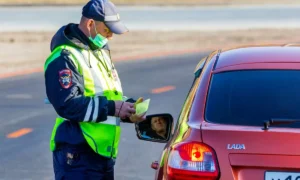Virginia has comprehensive labor laws that establish guidelines for the employment of minors under the age of 18. These laws aim to protect young workers while allowing appropriate employment opportunities.
What are Virginia Labor Laws?
Virginia has comprehensive laws regarding the employment of minors under the age of 18. These labor laws are meant to protect young workers by limiting the types of jobs and hours they are permitted to work. All employers in Virginia must adhere to the state’s minor labor laws.
Some key aspects of Virginia labor laws for minors include:
- Setting age restrictions for certain occupations or tasks
- Limiting the hours minors can work on school nights and during the school year
- Requiring work certificates for employees under the age of 16
- Mandating break and meal periods for minors
- Setting the minimum wage rates paid to minor employees
Virginia’s labor laws cover all employers, including private businesses as well as public and nonprofit organizations. Both federal and state laws apply, and employers must follow the stricter standard if the laws conflict. The Virginia Department of Labor and Industry enforces the state’s minor labor regulations.
Child Labor Laws in Virginia
In Virginia, the general minimum working age is 14. However, some jobs and tasks have even higher minimum age restrictions due to safety concerns. The following chart outlines Virginia’s child labor laws regarding minimum age restrictions:
| Occupation/Task | Minimum Age |
| Most jobs | 14 |
| Manufacturing, mining jobs | 16 |
| Using hoisting apparatuses or riding on motor vehicles | 16 |
| Using power-driven machinery other than office machinery | 16 |
| Cooking (with certain exceptions) and baking | 16 |
| Operating, setting up, adjusting, repairing, oiling, or cleaning power-driven food slicers, grinders, choppers, or cutters; bakery-type mixers; and federal and nonfederal meat slicers | 16 |
| Working in freezers or meat coolers | 16 |
| Using or storing explosives | 18 |
General Restrictions on Child Labor in Virginia
Beyond age restrictions, Virginia has additional general rules regarding the hours and conditions under which minors may work:
- School attendance: Minors must not work during hours when their school is in session, including during lunch periods on-site or off-site.
- Daily hours limit: Outside school weeks, minors aged 14-15 cannot work more than 5 hours per day, 18 hours per week. During the school year, the limit is 3 hours per day, 18 hours per week.
- Nightly hours restriction: Minors aged 14-15 cannot work between 11 p.m. and 5 a.m., except during summer vacation, when the nightly limit is midnight.
- Hazardous work prohibited: Minors cannot engage in work deemed hazardous, such as operating certain machines, heavy lifting over set weights, or working at extreme heights or in confined spaces.
It’s illegal for any employer to violate these general restrictions on child labor hours, conditions, and duties. Higher standards may also apply depending on the employer’s industry.
Exceptions to Child Labor Restrictions
There are a few limited exceptions to Virginia’s child labor restrictions:
- Newspaper deliveries: Children under 14 can deliver newspapers with written parental permission. However, they still cannot perform delivery work between 7 pm and 5 am.
- Farmwork: Children under 14 can perform farm-related work, including on the family farm, with written parental permission. They cannot perform hazardous tasks like operating heavy machinery.
- Entertainment industry: Children can be employed to perform, model, or be an extra in the entertainment industry subject to securing an entertainment work permit from the state. Strict rules regarding hours, education, and safety apply.
- Fishing and harvesting of fish and shellfish: Children under 14 can work on boats involved in commercial fishing or harvesting fish/shellfish only with written parental permission and if the work is non-hazardous to their health/well-being. Hours limits still apply.
Employment Certificates
In Virginia, any minor under the age of 16 working in a non-agricultural job must obtain an employment certificate. This certificate is meant to verify the minor’s qualifications and parental consent to work.
To apply for an employment certificate, the minor must bring the following documents to the issuing officer (usually located in the school district or county office):
- Proof of age, such as a birth certificate, driver’s license, or passport
- Written parental permission for employment
- Promise of future employment, signed by the employer
The issuing officer will review the documents and ensure the proposed employment complies with state and federal labor laws. If permitted, the officer will issue the employment certificate.
Certificates contain details like the minor’s name, birthdate, physical description, and authorized hours/conditions of work. Employers must maintain the certificates for their records and make them available upon request from inspectors.
Certificates can limit the hours or duties based on the minor’s age. They must be retained on file by the employer for the duration of employment and returned once a minor is no longer working. Failure to acquire or maintain proper certificates can result in penalties for both the employer and the minor’s parents.
Penalties for Violating Virginia Child Labor Laws
Employers who violate Virginia’s child labor standards are subject to financial penalties and other legal liabilities:
- Civil penalties: The State Department of Labor and Industry can issue civil penalties ranging from $1,000 to $10,000 for each violation.
- Criminal penalties: Employers can also face criminal charges like misdemeanor charges for egregious violations, which carry further penalties of imprisonment and/or fines.
- Private legal actions: Parents or guardians of affected minors may sue employers for negligence or labor law violations seeking monetary damages. Employees under 18 can also file their complaints.
- License/permit revocation: Employers could lose business or workplace certifications/permits related to violations.
- Adverse publicity: Public disclosure of child labor violations can significantly damage an employer’s reputation.
Frequently Asked Questions
The general minimum age to be employed in Virginia is 14. However, some jobs have age restrictions that are higher than 14 due to safety concerns. For example, children generally cannot operate heavy machinery or work in certain hazardous environments until age 16 or older.
The minimum wage in Virginia is $11 per hour effective May 1, 2024. However, there are special lower minimum wage rates for employees under the age of 18:
Employees under 18 years old: $9.15/hour
Employees under 16 years old: $8.50/hour
Employees under 18 years old employed as grocery store cashiers, bagging/carryout staff: $8/hour
Virginia law requires employers to provide minor employees (under 18 years old) with a 30-minute unpaid meal break whenever they work more than 5 hours. All employees must get a paid 10-minute break for every 4 hours worked in a shift.










